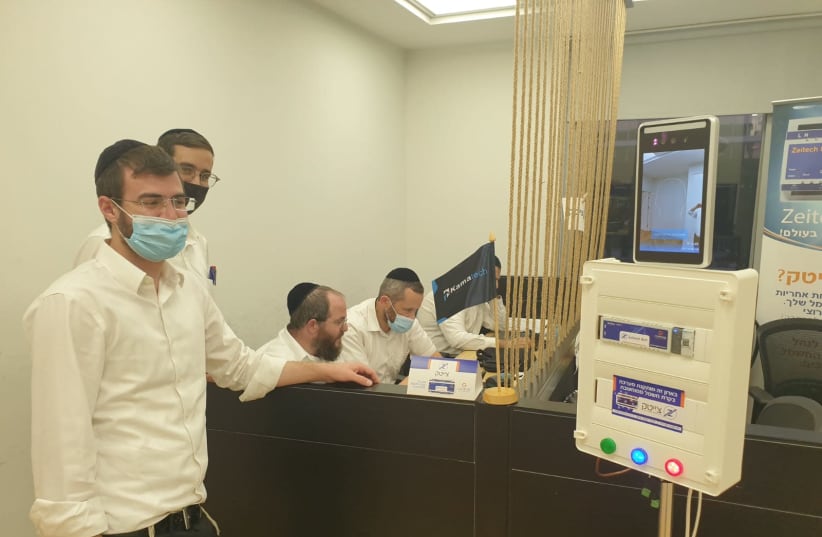Senior programmers and developers joined the hackathon to help work for 24 hours on developing a variety of solutions to help Israel better deal with the challenges brought by the pandemic.
Several of the proposals drew the interest of a number of international companies and non-profits, including Google, Pitango and Poalim Hi-Tech.
Many of the participants were from the largely haredi city of Bnei Brak itself, which was hit hard by the coronavirus outbreak, recording one of the highest infection rates in the country.
Each team focused on one goal from a list of challenges related to the pandemic, including big data analysis of the virus's behavior as well as patterns and tools to cut chains of infection in hotspots.
Prime Minister Benjamin Netanyahu and President Reuven Rivlin filmed messages for the participants and organizers of the event.
“I want to send you my heartfelt blessings on your outstanding initiative to incorporate Orthodox workers into the technology industry. I am thrilled that this sector is integrating so wonderfully into the industry,” said Rivlin, according to a press release.
The hackathon was sponsored by Kama-Tech, a social initiative to help absorb haredi workers into the hi-tech industry.
The event took place both on Zoom and in-person, while following Health Ministry guidelines.
“I’m very excited to be here at this event, launching a hackathon of male and female haredi programmers who united to develop innovative solutions to the many challenges that we’re facing in this era,” said Science and Technology Minister and coronavirus cabinet member Izhar Shay, according to a press release.“Over 300 people are here today, mostly on Zoom. Once again, Kama-Tech developers are proving how they successfully integrate innovation with love of Israel," he said. "The ideas that I’ve seen are all breathtaking and original.”
HI-TECH developer Tehillah Ruben, from Bnei Brak, stated that, as a resident of the hard hit city, she was "strongly motivated to seek solutions, and especially to brainstorm for ways to protect people classified as high-risk by significantly reducing the risks of infection."
Ruben and her team developed an app called Pod-It which allows users to check their risk levels.
Matt Eckstein and his team developed an app that can read a person's body temperature, tell if they're wearing a mask and identify the number of individuals in a building.
“Corona was a grueling period that affected everyone in different ways," Eckstein said. "Orthodox Jews in Israel often have large families, and we live a particularly social existence that includes meeting three times a day for prayers, daily study regimens and lectures in synagogues, as well as frequent family gatherings and large weddings and events," so they "faced their own unique set of technical challenges and complications."Unfortunately, COVID is not off the map yet, and we have to learn to live with it rather than escape it," he said. "The application that we developed facilitates this goal."
First place at the hackathon went to Natta Marom and his team who developed an application to study billions of transactions and identify correlations in ways that allow authorities to quickly identify outbreaks of the virus. The platform will identify infection patterns and analyze real-life anonymized information about the disease.
Marom's team will donate the NIS 5,000 prize to Ezer Mi'Zion, a health support organization in Israel which provides a variety of different medical and social support services.
“The Orthodox community was one of sectors hardest hit by corona in Israel, mostly due to the density of its cities which boast some of the highest populations and saturations in the country," said Moshe Friedman, founder and CEO of Kama-Tech. "In contrast, the Orthodox community also encompasses fantastic talent, creativity and wisdom."Particularly because we were so deeply affected by the virus, we were determined to recruit our greatest minds to gather and fight this life-threatening illness on the front lines," he said. "I had no doubt that we’d witness incredible results during these 24 hours, and we did.”
